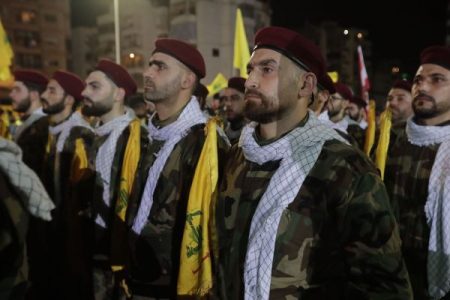
Hezbollah isn’t just in Beirut but it’s in New York too
In recent years, Hezbollah has stepped up its activities beyond Lebanon’s borders. This uptick has been clearest in the Middle East—in Iraq, Yemen, and especially Syria—but plots have also been thwarted in South America, Asia, Europe, and now, possibly, the United States.
Reports of Hezbollah activity in North America are not new, though such reporting tends to focus on the group’s fundraising, money laundering, procurement, or other logistical activities from Vancouver to Miami. But last month, the criminal prosecution and conviction in New York of the Hezbollah operative Ali Kourani revealed disturbing new information about the extent of Hezbollah’s operations and activities in the United States and Canada.
Taken together, the arrests in 2017 of Kourani and another Hezbollah operative, Samer el-Debek, led the U.S. intelligence community to revisit its longstanding assessment that Hezbollah would be unlikely to attack the U.S. homeland unless the group perceived Washington to be taking action threatening its existence or that of its patron—Iran. Following Kourani and Debek’s arrests, the director of the U.S. National Counterterrorism Center said in October 2017, “It’s our assessment that Hezbollah is determined to give itself a potential homeland option as a critical component of its terrorism playbook.”
At the time, little of the underlying information leading to this new assessment had been made public, but on May 16, a New York jury returned guilty verdicts on all counts in the indictment against Kourani, including terrorist charges related to his surveillance of FBI and U.S. Secret Service offices, as well as a U.S. Army armory, all in New York City. (Debek has yet to stand trial.)
Kourani carried out other operational activities as a long-term sleeper agent, acting on behalf of Hezbollah’s external attack-planning component, the Islamic Jihad Organization (IJO), such as identifying Israelis in New York who could be targeted by Hezbollah and finding people from whom he could procure arms that Hezbollah could stockpile in the area.
Most of his activities occurred in the United States, but Hezbollah also sent Kourani to China, where the group had previously procured chemicals used to make bombs of the kind the group built in Bulgaria, Cyprus, and Thailand. The 2012 bombing in Burgas, Bulgaria, left seven people dead including the bomber and 32 wounded, and bomb-making chemicals of the same type were found in Thailand in 2012 and in Cyprus in 2012 and 2015, when plots were thwarted there. Hezbollah also sent Kourani on operational assignments to Canada. Kourani described himself in interviews with FBI agents as being part of a “sleeper cell.”
“While living in the United States, Kourani served as an operative of Hezbollah in order to help the foreign terrorist organization prepare for potential future attacks against the United States,” said U.S. Assistant Attorney General for National Security John Demers. These included buildings housing the FBI and U.S. Secret Service in Manhattan, as well as New York’s John F. Kennedy International Airport and a U.S. Army armory.
Kourani comes from a family that’s well known in Hezbollah circles—he described them to the FBI as the “bin Ladens of Lebanon”—and he first attended a Hezbollah training camp as a teenager. But the group only recruited him into its elite IJO—Hezbollah’s external operations unit, also known at Unit 910—in January 2008, a month before the assassination of the IJO commander and longtime wanted Hezbollah terrorist Imad Mughniyeh in what was later revealed to be a joint U.S.-Israeli operation.
The timing is significant: It shows that that even before Mughniyeh’s death, Hezbollah was looking to rebuild its international terrorist networks. It is also significant because it put Kourani in the right place at the right time. In a video broadcast at Mughniyeh’s funeral, Hezbollah Secretary-General Hassan Nasrallah issued a not-so-veiled threat that attacks abroad would follow, saying, “With this murder, its timing, location and method—Zionists, if you want this kind of open war, let the whole world listen: Let this war be open.”
Shortly thereafter, Kourani’s secret work for Hezbollah’s IJO abroad began. Hezbollah was “desperate because they were looking to exact revenge for [Mughniyeh’s] death,” Kourani told the FBI.
Source: Foreign Policy





